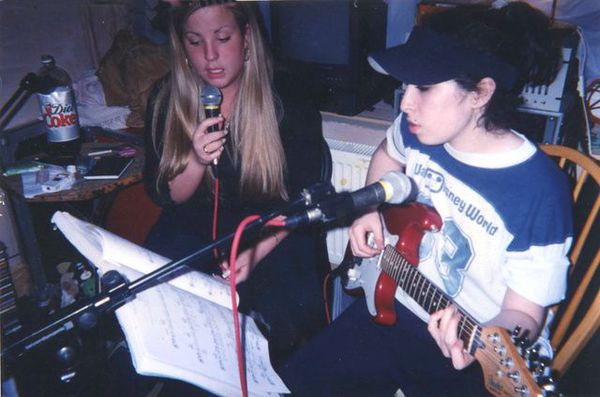Eye For Film >> Movies >> Amy (2015) Film Review
Amy
Reviewed by: Robert Munro

It has been five years since Asif Kapadia brought the thrilling and tragic portrayal of racing driver Ayrton Senna to the screen, and his return to feature length filmmaking finds him detailing the life of another captivating soul departed too soon. There has been an attendant level of controversy over this depiction of Amy Winehouse, with her father Mitch labelling the filmmakers a ‘disgrace’, yet it is undoubtedly an intensely sad and affecting look at a hugely talented young woman, ill equipped for the all-consuming fame which her soulful voice would bring her.
Combining a wealth of archive video footage from throughout Amy’s life with interviews with those who knew her best, Kapadia manages to assemble a narrative covering Amy’s rise to fame at the age of 16 to her untimely death from alcohol poisoning at just 27 years old. As in Senna, the director eschews the talking heads, so that those recalling Amy’s life are heard over video footage of the star herself, ensuring that she is always the focus of attention, though the habitual use of drone cameras to film flying aerial shots becomes a bit distracting.

The documentary is on strongest ground when letting Amy speak for herself. That is, the footage of Amy performing songs she has written takes on a ghostly poignancy with hindsight attached, and the film cleverly produces the lyrics on screen as she sings. Her precocious talent at 16, at which age she signed a record deal, is matched with a world weariness well beyond her years. Indeed, at 18 she sings in front of a record producer in what looks like his front room. Hunched over a guitar, brazenly attempting to overcome her shyness, she produces a song she has written - Love Is Blind - detailing a fling with a lover who resembles her current beau with such knowing tenderness and wit you wonder how many lives she has led to this point.
The performances and song writing become ever more prescient. At 21 she sings “my destructive side/has grown a mile wide” and as her fame grows so do her self-destructive tendencies, though the documentary perhaps sensitively suggests that some of these could have been curbed by some of the influential men in her life and that she was never offered the support she needed for her struggles with bulimia. It is not hard to see why her father has become defensive over this portrayal. Both he and the love of her life, Blake Fielder, come across as holding on to Amy’s coat-tails in order to further their own selfish needs, although how much of that is down to the film’s editing remains open to question. Both certainly cash in from Amy, signing up to TV shows milking their close relationship with her, which seems particularly distasteful given Mitch’s admission of having had an affair shortly after Amy was born, and walking out on the family when she was nine. As Amy tries to escape to St. Lucia, after being hounded by pond-life paparazzi in North London, Mitch arrives with a camera crew in tow, seemingly believing himself to have had some important role in Amy’s stratospheric success.
Yet despite these controversies and the film’s handling of the material, one gets the impression that it is not encouraging judgement on those around Amy, but instead celebrating her unique capabilities as a musician and her genuine honesty in an industry repugnant with falsehoods and public relations bollocks. Some of the film’s best moments show us her lovably blunt, down-to-earth qualities, such as the faces she pulls when one interviewer compares her soulful lyrics to Dido’s; or her eye-rolling reaction at the Grammy’s when Justin Timberlake’s nomination is read out - “He’s called his song What Goes Around Comes Around?”
The film’s most heartbreaking moment arrives as Blake films her, teasingly and repeatedly asking for a new version of her most famous song, Rehab. The song’s searing honesty describes how Amy wouldn’t go to rehab despite being urged to partly because “my daddy thinks I’m fine”. Of course when Blake is filming years later they are both in rehab, and Amy’s vulnerable response - I actually quite like it here - provokes a lump in the throat at the depressing inevitability to this story’s conclusion.
Reviewed on: 16 Jun 2015















